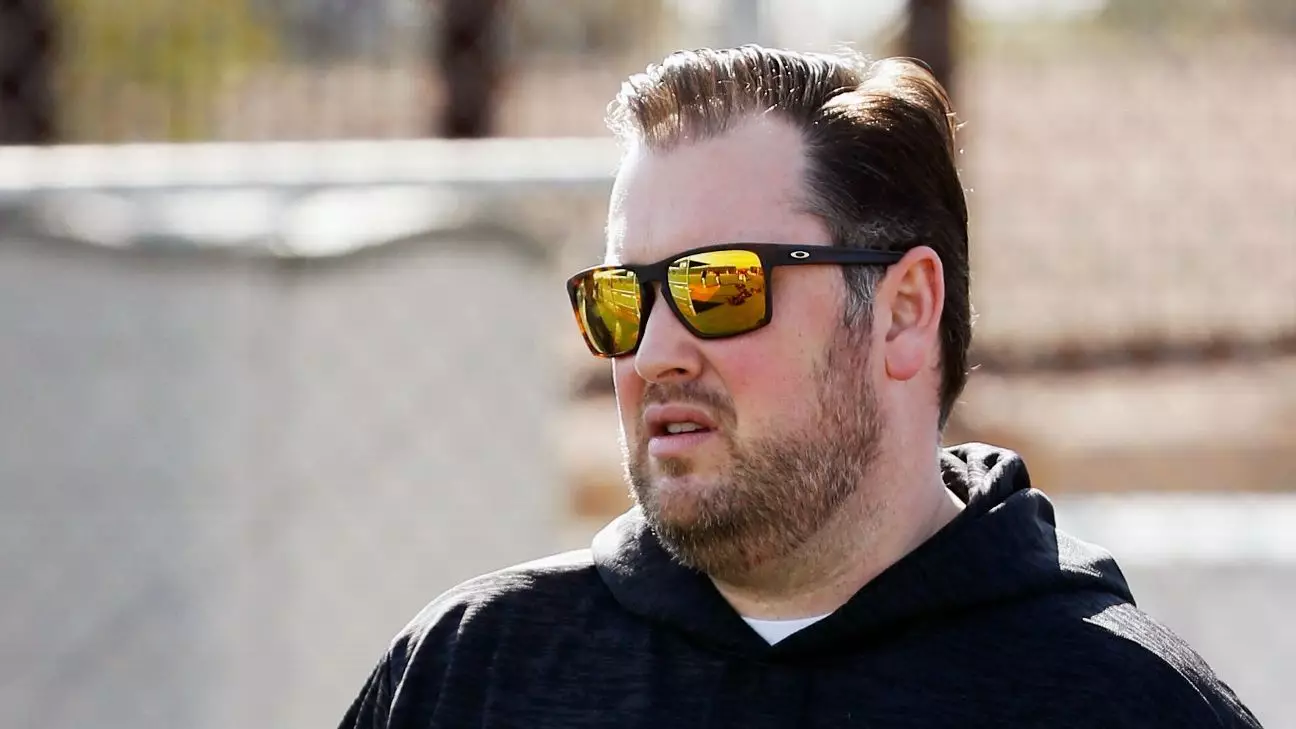In a landscape where accountability is paramount, Jared Porter’s journey offers a cautionary tale about the consequences of personal misconduct, particularly within the high-stakes environment of professional sports. As a former executive for the Chicago Cubs, Porter’s career plummeted not due to a lack of skill but rather because of a poorly conceived decision that reverberated through the industry. In 2021, shortly after being appointed general manager of the New York Mets, he was ousted following revelations of inappropriate texts he had sent to a female reporter back in 2016. This incident serves as a stark reminder of how personal actions can ultimately hinder professional opportunities.
Porter’s first public comment regarding his termination came during a recent episode of the “Baseball Isn’t Boring” podcast, shedding light on the complexity of navigating personal mistakes in the public eye. The shame and fear Porter expressed reflect a profound understanding of the gravity of his actions. He stated, “I want to be very accountable about that,” indicating his recognition of responsibility—not only towards the reporter but also towards his family and the organizational culture he was expected to uphold. This acceptance of blame illustrates an evolutionary moment: an individual confronting the repercussions of their actions and the resulting damage to their reputation and career.
Ironically, Porter’s brief tenure with the Mets coincided with the global pandemic, a context that profoundly altered how team dynamics typically operate. He was unable to meet owner Steve Cohen or visit Citi Field, creating an unusual disconnect in his new role. The pandemic ethos of distance and isolation mirrored Porter’s own emotional trajectory during this turbulent time. His acknowledgment of this lack of connection suggests that team ownership made a difficult yet necessary decision when Porter’s past missteps became public.
“I hold zero ill will toward them whatsoever,” Porter said about the decision-makers at the Mets, highlighting how he reconciled his circumstances with the broader implications of his choices. This sentiment points to a level of maturity that may not have been evident before the fallout occurred.
Following his dismissal, Porter sought professional help, emphasizing the importance of mental health—a topic often sidelined in both athletic and corporate environments. His experience at The Meadows, a mental health facility, showcased his commitment to addressing the emotional trauma that accompanied his fall from grace. Porter candidly reflected on how surreal the transition was—from acquiring notable players like Francisco Lindor to being in such a vulnerable state.
His journey through both inpatient and outpatient therapy underscored a need for personal growth. “I had huge emotional walls. You know, I think I lacked some boundaries,” he insisted, revealing inner struggles that may have contributed to his initial indiscretion. This period of introspection allowed him to confront his vulnerabilities and begin to build a healthier relationship with both himself and those around him.
Ultimately, Porter redirected his energy towards a noble cause: the mental health of young athletes. By co-founding a company named Blend, he focuses on imparting mental health skills to youth, collegiate, and professional athletes alike. This shift not only serves as an attempt at personal redemption but also as an opportunity to contribute positively to an industry rife with pressure and public scrutiny.
Porter’s journey—marked by poor decisions, public humiliation, and an earnest pursuit of healing—highlights the value of accountability in professional environments. His efforts to rectify his past by promoting mental health awareness signal a commitment to fostering better practices moving forward. This narrative is not just about a man who fell from grace; it’s about resilience, growth, and the potential to emerge from the darkness into a more purposeful light.


Leave a Reply